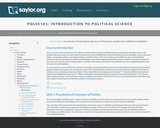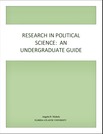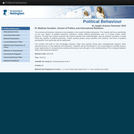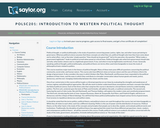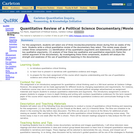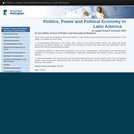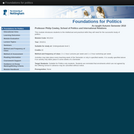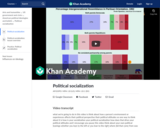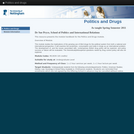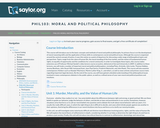
This course introduces students to the basic concepts and methods of moral and political philosophy. Its primary focus is on the development of moral reasoning skills and the application of those skills to contemporary social and political issues. Upon successful completion of this course, students will be able to: Discuss several major theories of justice and morality, including utilitarianism, libertarianism, social contract theory, deontology, and the ethics/politics of virtue; Demonstrate how moral and political dilemmas are handled differently by each set of theoretical principles; Develop their analytical skills through interpreting the consequences of various moral principles and revising principles to correspond with their own conceptions of justice; Discuss the relationship between morality and politics; Formulate their own positions concerning moral and political principles, especially in regards to particular issues discussed in this course; Discuss the origins of western democratic politics and constitutional government; Address a range of difficult and controversial moral and political issues, including murder, the income tax, corporate cost-benefit analysis, lying, affirmative action, and same-sex marriage. (Philosophy 103)
- Subject:
- Arts and Humanities
- Philosophy
- Political Science
- Social Science
- Material Type:
- Assessment
- Full Course
- Lecture
- Reading
- Syllabus
- Provider:
- The Saylor Foundation
- Date Added:
- 11/10/2011

